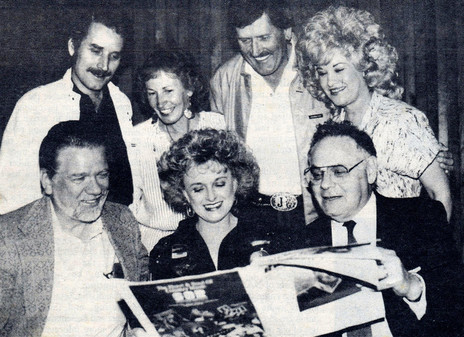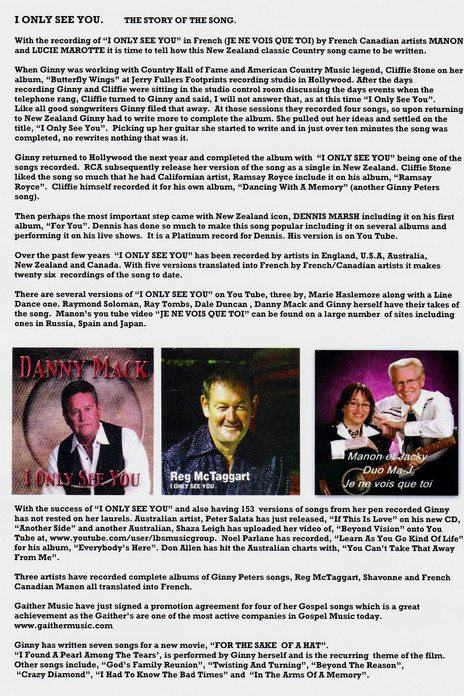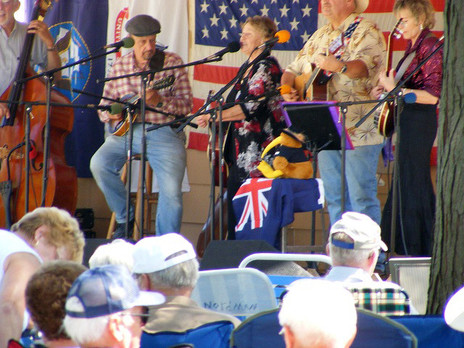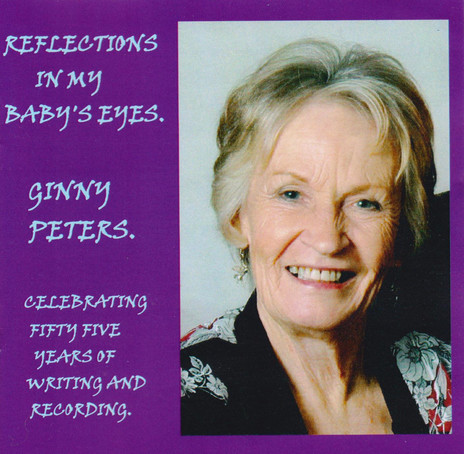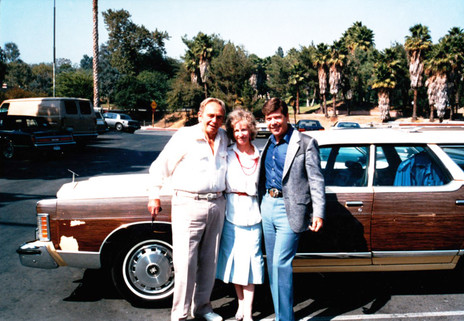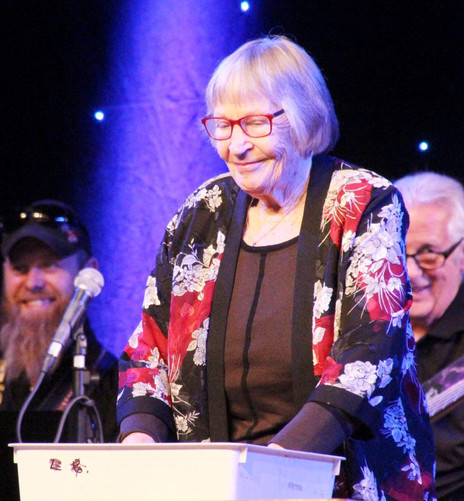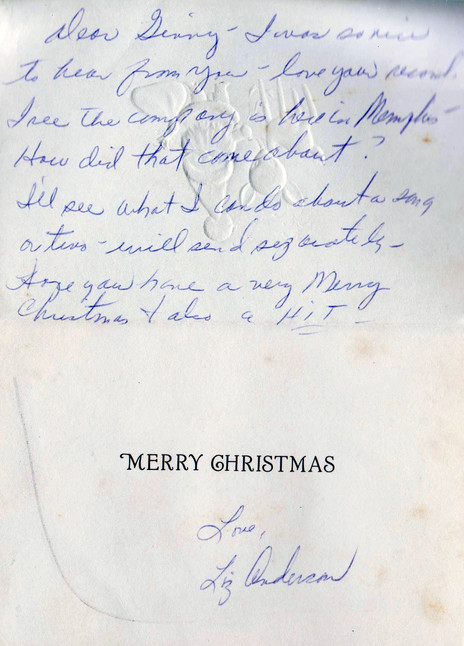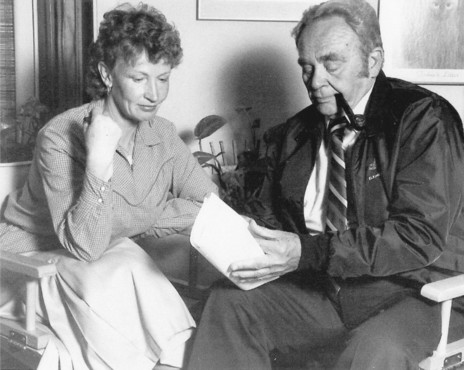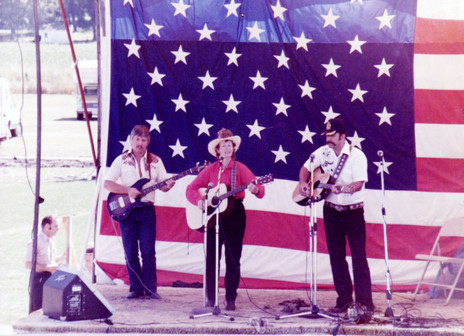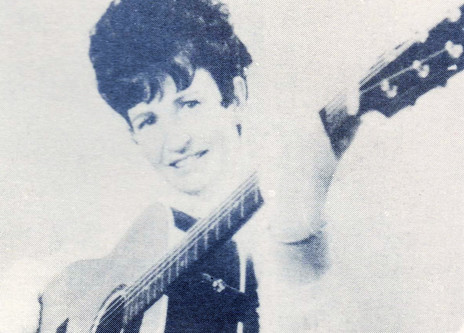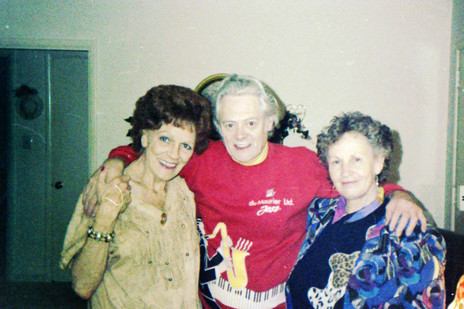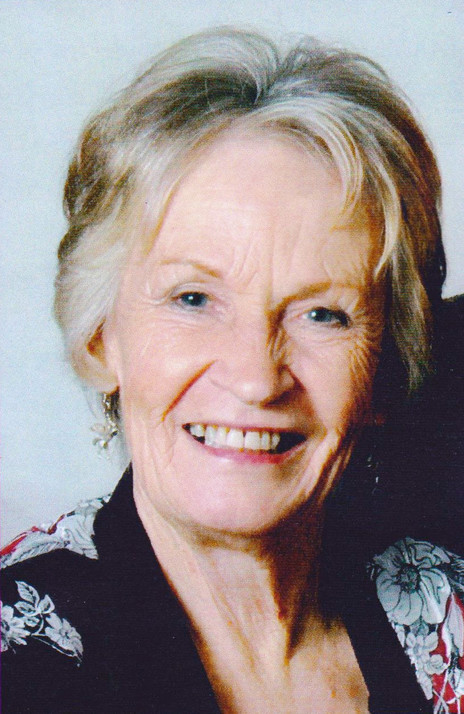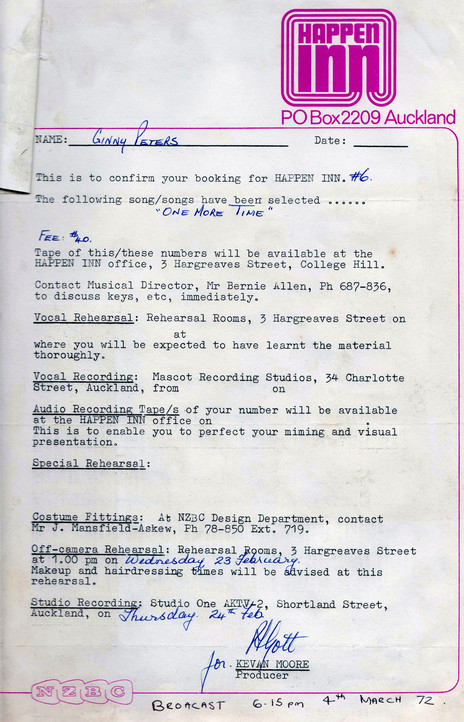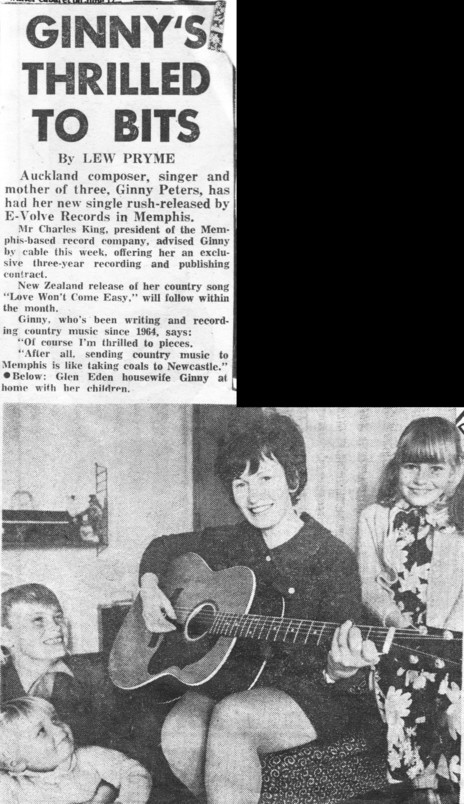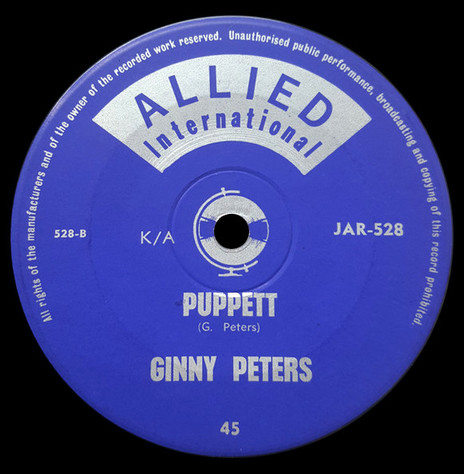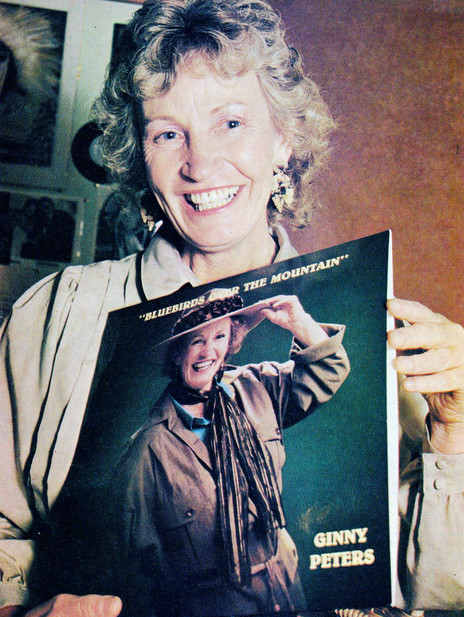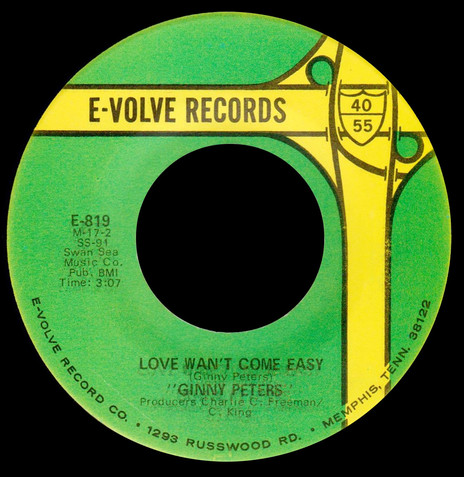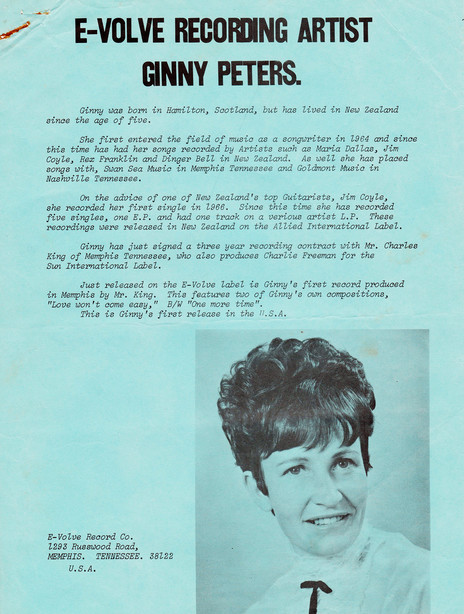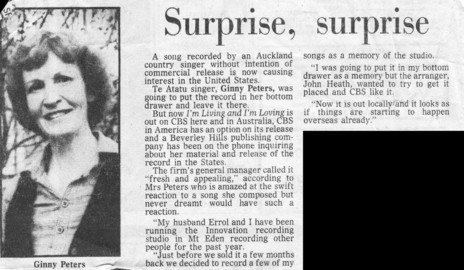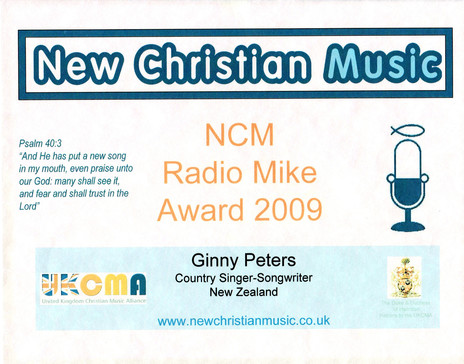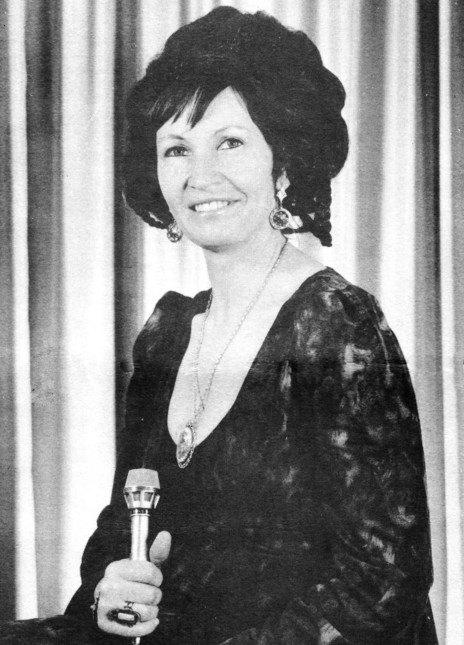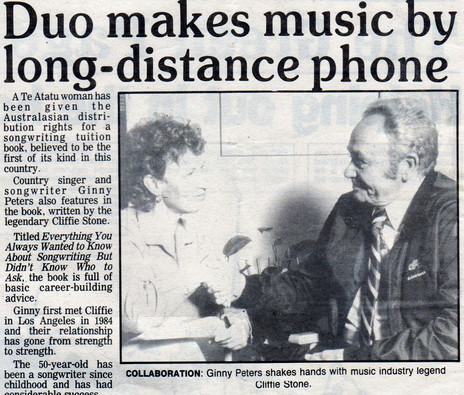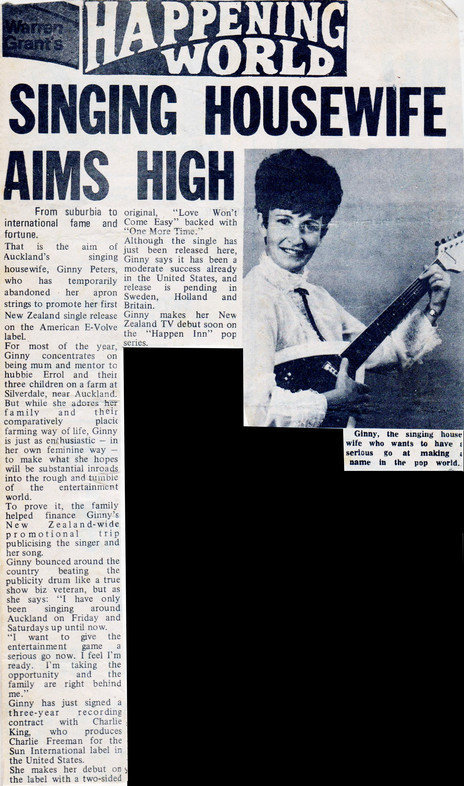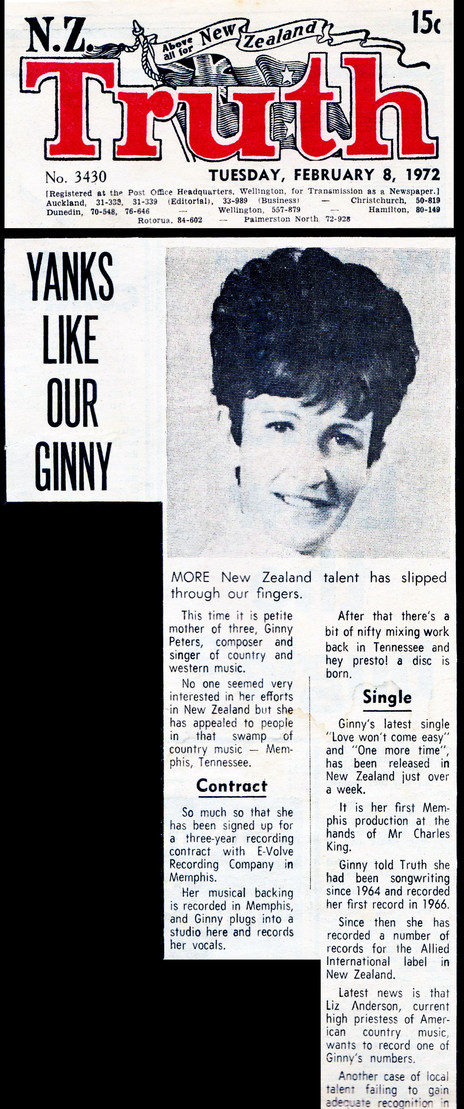Early the next year, Stone called to say he was still interested. He explained he had been unable to see her in LA because he was the manager of ATV Music’s country division and the company had been in clandestine negotiations with Michael Jackson’s lawyers over buying ATV and therefore acquiring the rights to 251 Beatles songs, which Jackson eventually did for US$47.5 million.
Peters returned to the States in 1985 and 1986, recording tracks with members of new-country acts Highway 101 and The Desert Rose Band. Two singles by Peters, produced by Stone, were released on RCA in New Zealand. But a planned LP was shelved when A&R man Ray Bussey, a country fan, moved on.
When Peters asked for the return of the master tapes, RCA told her they couldn’t find them. They were finally discovered by Stone’s wife after his 1998 death and later released by Peters as Butterfly Wings.
Peters’ songs have been recorded more than 170 times in five different countries.
Ginny Peters’ earliest successes were as a songwriter in the 1960s when New Zealand country music stars Rex Franklin and Maria Dallas recorded her songs. She released music on Allied International, Viking, Zodiac, Epic and RCA in New Zealand and on E-Volve and Playback in the United States. Her songs have been recorded more than 170 times in five different countries and she has signed “enough useless contracts to paper a bedroom”.
Throughout her career, she has been devoted to the craft of songwriting and is an advocate of local artists writing their own material. She has never rated herself as a singer but confessed: “I guess it is my unusual voice that has helped me, particularly in the States.”
Born Jeanette Copeland in Burnbank, South Lanarkshire, Scotland, on 24 July 1941, Peters was raised by her grandparents for the duration of World War II. Her father was serving with the 2nd New Zealand Division in Egypt while her mother was nursing wounded soldiers in London.
Mother and daughter travelled to New Zealand in 1946 aboard the troop ship QSMV Dominion Monarch along with the Māori Battalion, 18 other army wives and five children, including one David “Bruno” Lawrence. The Copeland family settled in Hastings before moving to Wellington in 1954.
Neither of Ginny Peters’ parents was musically inclined, although her mother loved country-and-western yodeller Slim Whitman. Peters’ tastes were more to the likes of Elvis Presley, Bill Haley and rock’n’roll music, but her singing was restricted to Sunday School at St John’s Presbyterian Church on Wellington’s Willis Street. It was there she began writing gospel songs.
She wed Errol Peters on 17 September 1960, and they built a home in Palmerston North. “It was not until I meet Errol that I grew to like country music,” Peters told AudioCulture. “Errol was really into Hank Williams. He was also a fan of Marty Robbins and, to a lesser degree, Hank Snow.”
Early in 1963, Errol visited 2ZA in Palmerston North, where New Zealand country recording stars Rex and Noelene Franklin had been performing a live radio broadcast, and handed the couple a reel-to-reel tape of Peters’ songs. Franklin liked ‘His Guiding Hand’ in particular and recorded it for his next album, Rex Franklin and His Prairie Pals.
The cut encouraged Peters to get more serious about writing and she passed ‘Nimble Fingers’ – “one of these early serious attempts” – to Whanganui guitarist Jim Coyle. An instrumental with a vocal chorus, ‘Nimble Fingers’ needed a singer and Coyle had just the voice.
Peters’ song ‘Nimble Fingers’ needed a singer, said Whanganui musician Jim Coyle: Peters herself.
“I thought that he may record it with one of the other artists he was working with, but he insisted that I sing it,” Peters said. “Much to my resistance, as I did not consider myself to be a singer.” The single was released on Allied International and the company gave Peters a recording contract.
She released four singles for Allied International in 1966 and 1967. ‘Nimble Fingers’ and ‘Puppet’, the flip side to ‘Busted’, were finalists in the APRA Silver Scroll of 1966. ‘Must They Judge Me’ appeared on the Allied International LP The Nashville Trend Volume One, for which producer Jim Coyle’s liner notes declared the artists therein “despite their obvious talents, have found it difficult to break into the tight little ‘clique’ which constitutes the New Zealand pop industry”. Coyle paid all the recording costs for most of the artists he produced.
Another Silver Scroll finalist in 1966 was the Jay Epae-penned ‘Tumblin’ Down’ recorded by Maria Dallas. Viking A&R man Ron Dalton was on the lookout for new songs for Dallas to record and Rex Franklin played him some of Ginny Peters’ demos.
Dalton invited Peters to HMV Studios in Wellington to demo her latest songs with just guitar. He chose two for Dallas to record and offered Peters her own recording contract with Viking, and a contract with their publishing arm Seven Seas.
The offer of a management contract with singer-turned-agent Mary Throll brought Ginny and Errol Peters to Auckland in 1967, but it resulted in little reward. “This contract, like many that I have had over the years, was not worth the paper that it was written on,” Peters lamented.
In the meantime, one of Peters’ Allied International singles had made its way to E-Volve Records head Charles King in Memphis, Tennessee, and he signed her to his label. Peters went into an Auckland studio and recorded guide vocals on one track while Bob Wynyard’s guitar was recorded on another. The tape was sent to Memphis where King recorded backing from Jerry Lee Lewis’s band in the legendary Sun Studios.
“I recorded the main vocals, when the eight-track came back from Memphis, in Stebbing Studios in Auckland, and I remember the engineer there could not believe the sound, in particular the bass guitar,” Peters said.
The backing tracks of Peters’ 1972 single ‘One More Time’ were recorded in Memphis by Jerry Lee Lewis’ band.
The single – ‘One More Time’ b/w ‘Love Won’t Come Easy’ – was released on E-Volve in the United States. The sides were reversed and released in New Zealand on Viking in 1972. Both appeared on the Viking compilation New Zealand Country-Folk 2, but of the Viking recording and publishing liaison Peters said, “Both contracts turned out to be a waste of time.” A second E-Volve single – ‘Satisfy Her Hunger’ b/w ‘Love Is Gone’, both by Memphis writers – was released in New Zealand on Zodiac.
By the time of her next 45, 1974’s ‘Hey Diddle Diddle’ b/w ‘Heart To Heart Talk’, credited to Ginny Peters With The Laredos, Ginny and Errol had set up their own Innovation label. They released eight singles that year, four featuring Auckland band The Laredos, and the album Introducing Marilyn Fenton and The Laredos. But Innovation’s biggest success came with Deane Waretini’s ‘The Bridge’ in 1980.
“Deane recorded the song and took it around all the major labels and they all turned him down,” Peters said. “So he came to us and we released it for him. However, once the song began to get a lot of airplay, CBS – who had turned him down in the first place – contacted us and offered to lease the master from us, which we agreed to as they could do much more for him than we could.” CBS reissued it and ‘The Bridge’ took the No.1 spot on 3 April 1980. It remained in the New Zealand charts for 14 weeks.
That same year, they built a recording studio, also called Innovation, underneath the Crystal Palace movie theatre in Mt Eden Road. They sold the place after receiving an offer that was “too good to refuse” in 1982. The space continued as a studio and The Lab moved there in 1998.
“When we sold Innovation I realised that I had not recorded anything while we had the studio, so I had pianist John Heath produce two of my songs [‘I’m Living And I’m Loving’ b/w ‘Jessica’]. He then took the masters into Epic and they agreed to release them.”
They started Pegasus Music from their Te Atatu home in 1984 and Errol sent a cassette tape of his wife’s songs to producer Steve Stone, who was working with Pat Boone. Stone liked what he heard and forwarded the tape to his father Cliffie Stone, who phoned Peters to say he loved her voice and wanted to work with her.
As Ginny and Errol were travelling to the United States for a country music festival that August, they met with Stone and went over his ideas. When he pulled out of a further meeting, Peters went home dejected.
But after Stone’s early 1985 call to explain his involvement in the Michael Jackson purchase of ATV Music, Peters was in a Hollywood studio that July. She cut five songs produced by Stone and utilising some of California’s hottest country pickers. He also signed Peters to a recording and publishing contract.
After returning to New Zealand to write more material, Peters ventured back to LA in 1986 and recorded a further seven songs for a planned New Zealand album on RCA. Two singles from the sessions were released on the label, but the LP never eventuated after RCA underwent an executive reshuffle and dropped a lot of artists. That was when the Hollywood masters went missing.
Two years later, Peters was contracted to Jack Gale’s Playback Records, whose roster included Jeannie C. Riley, Sammi Smith and Ernie Ashworth, to record Bluebirds Over The Mountain in Nashville. Two singles – ‘Freight Train’ and ‘Old Fashioned Lover’ – charted in the Cashbox Country Top 100.
In 1988 Peters was contracted to Playback Records in the US, home of Jeannie C Riley and Sammi Smith.
For the next few years, Peters focused on Pegasus Music. Now a multiplatinum recording star, Dennis Marsh recorded his first five albums at Pegasus. One of his best-loved songs is the Peters-penned ‘I Only See You’. Written for the missing Cliffie Stone-produced album, it had already been recorded by Stone himself and Californian Ramsey Royce, and has gone on to be covered more than 30 times in five countries. Others to record at Pegasus include Donna Dean, Anne Montgomery, Red Hewitt and Rusty Greaves.
While attending a Nashville Songwriters Association International (NSAI) conference in Nashville in 1989, Peters was asked to open a New Zealand branch, which she did. The regular workshops attracted songwriters such as Arthur Baysting, Al Hunter and Donna Dean. Hunter took over when Peters departed in the mid-1990s.
Ginny Peters released albums As Long As The Road, the gospel collection Great Speckled Bird and the long-lost Butterfly Wings, as well as compilations Looking Back and the career-spanning Reflections In My Baby’s Eyes. There have also been collections of her songs as recorded by artists from the US, Australia, Canada and New Zealand.
She was inducted into America’s Old-Time Country Music Hall of Fame in 2007 and awarded the Rural Roots Music Commission International 2007 Song of the Year for ‘In The Arms Of A Memory’, another from the Hollywood sessions. In 2009 and 2010, she was presented with New Christian Music Radio Mike Awards, and in 2019 was inducted into the Hands of Fame at the New Zealand Gold Guitar Awards in Gore.
When Errol Peters retired in 2008, the couple moved to Oamaru to be closer to family. They still run Pegasus Music and Ginny Peters is still writing songs. In 2021 her song 'Footprints Over My Heart' – written 25 years earlier after the sudden death of her two-year-old granddaughter Eva – was recorded by New Zealand singer Carylann.
Peters’ songwriting tip, as it appeared in the annual edition of the US-produced Songwriter’s Market publication: “Get to the meat of the subject without too many words. Less is better.” Perhaps the same could be said for contracts.
